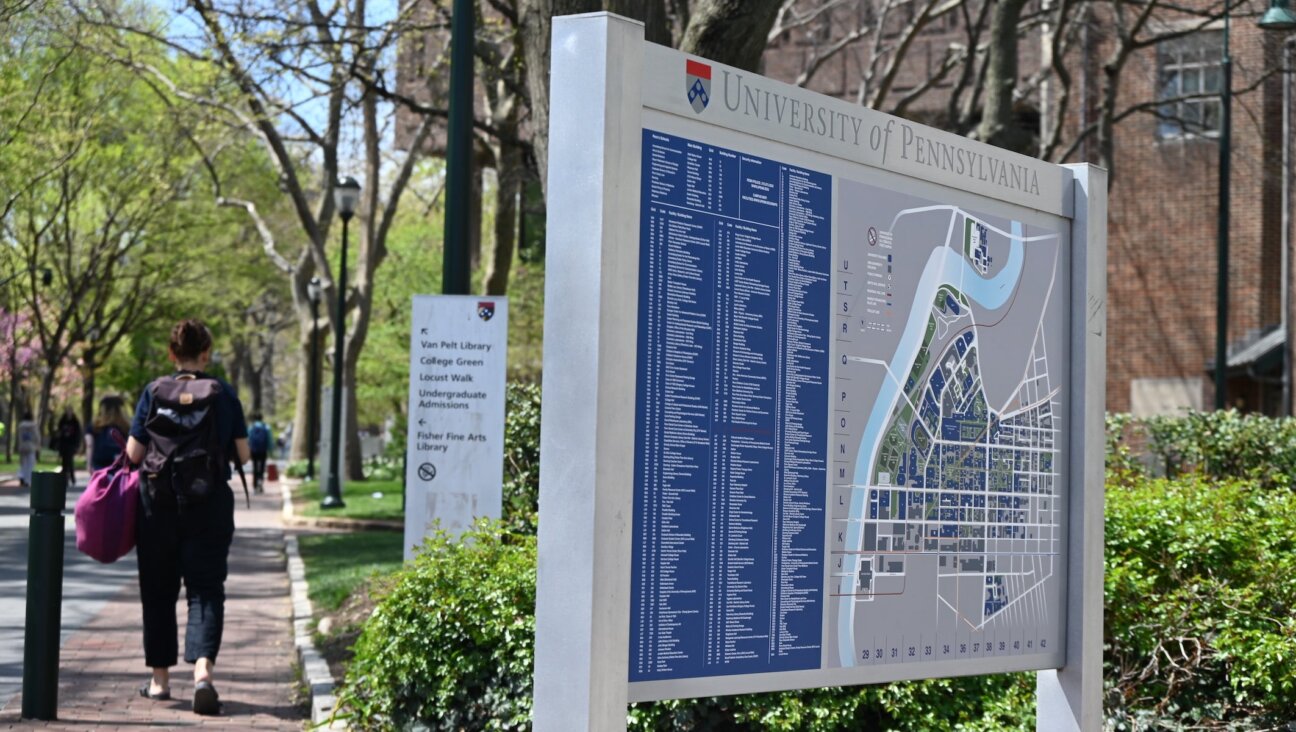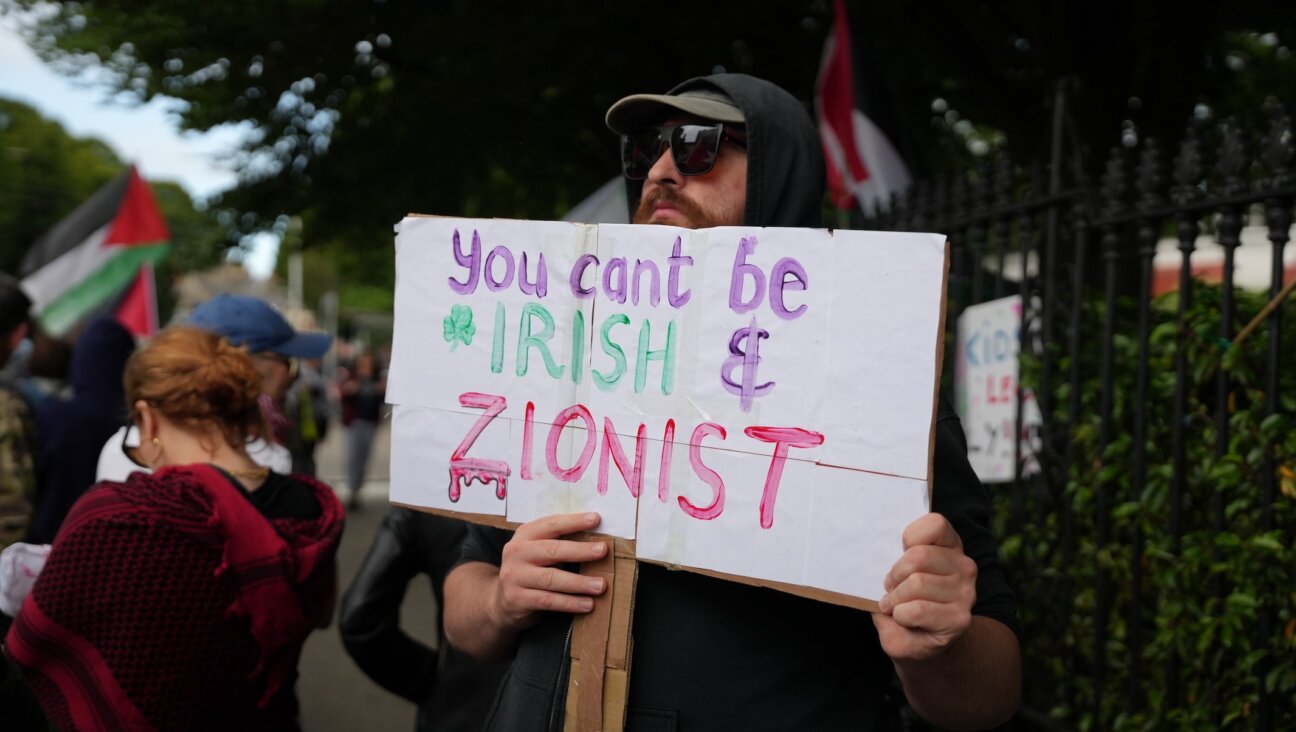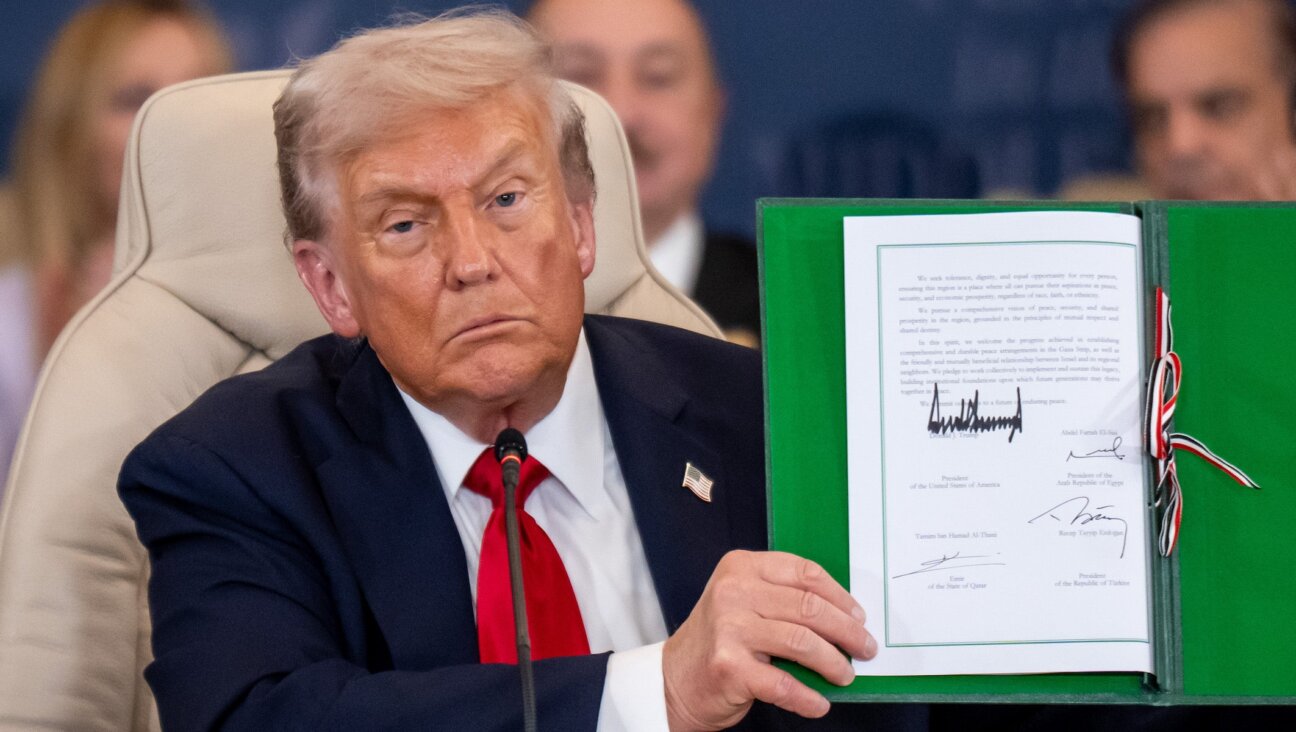Shouting To Be Heard

Image by Kurt Hoffman
Some inside the Jewish world have asked why a group of 14 young activists affiliated with Jewish Voice for Peace chose to disrupt Israeli Prime Minister Benjamin Netanyahu’s speech to the General Assembly of the Jewish Federations of North America in New Orleans. Five of these young Jews stood up during Netanyahu’s G.A. address to unfurl banners and chant “The occupation delegitimizes Israel” and “The loyalty oath delegitimizes Israel.”
Ours is not the first group to be challenged for choosing tactics of nonviolent direct action. Martin Luther King famously wrote in his “Letter from a Birmingham Jail”: “You may well ask: ‘Why direct action? Why sit ins, marches and so forth? Isn’t negotiation a better path?’ You are quite right in calling for negotiation. Indeed, this is the very purpose of direct action. Nonviolent direct action seeks to create such a crisis and foster such a tension that a community which has constantly refused to negotiate is forced to confront the issue… Too long has our beloved Southland been bogged down in a tragic effort to live in monologue rather than dialogue.”
These young activists went to the heart of the Jewish community to demand that our teachers and rabbis, family members and colleagues stop living in a closed monologue and start living in an open dialogue. Though these activists would have preferred a two-way conversation, the fact is that they, like many before them, had to shout to be heard, to demand that the organized Jewish community confront the truth — that it supports Israel’s illegal and brutal occupation and human rights violations with both money and institutional power.
Jewish Voice for Peace wants open dialogue and debate, and Israeli-Palestinian negotiations based on fairness and equality. That is the only way to a just peace in the Middle East. But the organized Jewish community works overtime to marginalize the voices of Jews — and others — who support equality between Israelis and Palestinians.
And while our struggle within the Jewish world is personal and painful for us, we know that it is actually Palestinians whose voices need and deserve to be heard. A lasting peace will only be possible when Palestinians are seen as truly equal and their claims no longer ignored — whether in Jewish community forums across North America, or at the diplomatic negotiating table with Israel.
Our young people also interrupted Netanyahu’s speech to remind the Jewish community of its bedrock values, too easy to lose sight of in the face of our fears: “That which is hateful to you, do not do unto another.” They wanted to remind us that no conversation about Qassam rockets in Sderot is complete without also discussing settlers in Hebron who hurl feces, urine and stones down on the heads of Palestinians; the denial of 1.5 million Gazans access to adequate food, fuel, health care or housing; the escalated campaign of arrests aimed at nonviolent human rights activists or the dual standards of law in the West Bank.
But this has been a nearly impossible discussion to have. Over the years, there have been countless attempts to cancel events with Palestinian speakers or critics of Israeli policies. San Francisco’s Jewish Community Federation even used controversial funding guidelines to limit speech on Israel and prevent organizations it funds from publicly associating with groups like ours.
The institutional Jewish world, however, is losing its battle to act as though we don’t exist. We exist. And like it or not, many in the younger generation are starting to hold and act on views similar to ours.
One member of our team of young Jews is involved in her campus Hillel. One graduated from the Jewish Theological Seminary. One is a Jewish educator; one a rabbi. One member, an Israeli, lost sight in one eye at age 17 when he was shot by an Israeli soldier at a protest against the separation barrier. Another is an Israeli army veteran. This group is deeply connected to the Jewish world and wants to stay connected.
It is a shame that in a community that claims to welcome the next generation, these young people felt they needed to shout to be heard. When the Jewish world truly listens — not just to these young Jews but also to Palestinians — there will be no more need for disruptions.
Cecilie Surasky is deputy director of Jewish Voice for Peace.
















